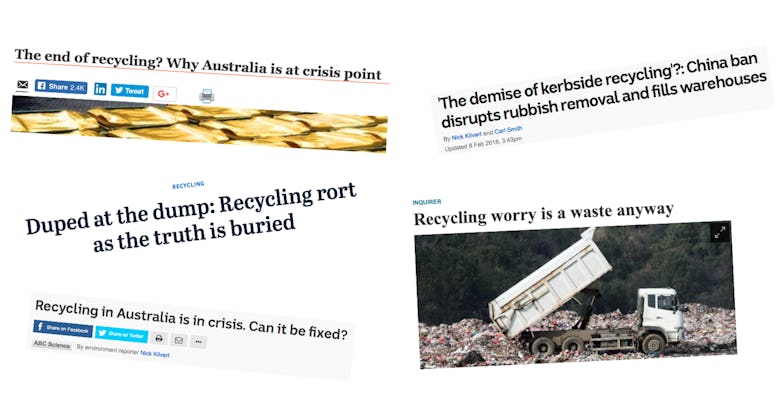Trying to implement better sustainability practices in the workplace can be …. um…trying! Using the latest brain science research findings, we’ve identified 4 barriers that may be preventing you from creating behaviour change in your workplace successfully.
Knowing the psychological barriers to behaviour change, even for something as seemingly simple as implementing a new recycling system at work, will enable you to address them more effectively with the right strategies.
Barriers to behaviour change can be explained in terms of psychological distance where things are not present in a person’s direct experience of reality. They include:
- Problems are too uncertain – an issue of “hypothetical distance”. An example of this are the arguments used by climate sceptics.
- It’s happening in the future – an issue of “temporal distance”. The issue is not relevant to or affecting them currently. For example, even those that do believe in human-induced climate change may feel like they have other things to worry about for now.
- It’s happening somewhere else – an issue of “geographical distance”. The problem isn’t considered to be on their doorstep therefore it’s not relevant to them. For example, ‘there isn’t a big pile of waste in my backyard so as long as I can’t see it, I’m not going to care’.
- People affected are unlike me – an issue of “social distance”. People can’t relate an issue to their family or community, therefore it’s not personally applicable. For example, people living on the Eastern coast of Australia with relatively good rainfall may not relate to the impacts on communities of drought in regional areas.
The above barriers can often be reinforced by what’s happening in the media. For example, the China Sword issue, which has placed restrictions on recycling material being sent to China for processing, has heightened these barriers for recycling. We’ve seen the headlines…

For those who identify as someone who doesn’t make the effort to recycle, these headlines will reinforce their belief and behaviour. For others, these headlines will reduce their trust in the system. This sort of negative reinforcement of barriers can have tangible effects. We may be seeing the effect of this already with Ipswich Council in QLD reporting that their contamination rates have doubled in the past year.
On a more micro level, when thinking about implementing any kind of changes in the workplace, particularly related to sustainability and changing behaviour, it’s worth considering what kind of beliefs people may hold and how those might be barriers to implementing change.
Considering the 4 barriers above may help when planning your communications to key stakeholders and staff, making your reasoning relatable, tangible and relevant to those impacted will help have a positive impact to the success of your implementation.
More information
- Want more ‘Behaviour Change Made Easy tips'? Check out Planet Ark’s series of articles.
- Learn more about understanding values to improve recycling by watching the presentation by Planet Ark’s Recycling Programs Manager, Ryan Collins, at the Waste 2018 Conference.
References
McDonald R.I, Chai H.Y. & Newell, B.R. (2015) ‘Personal experience and the ‘psychological distance of climate change: An integrative review’, Journal of Environmental Psychology 44, pp 109-118